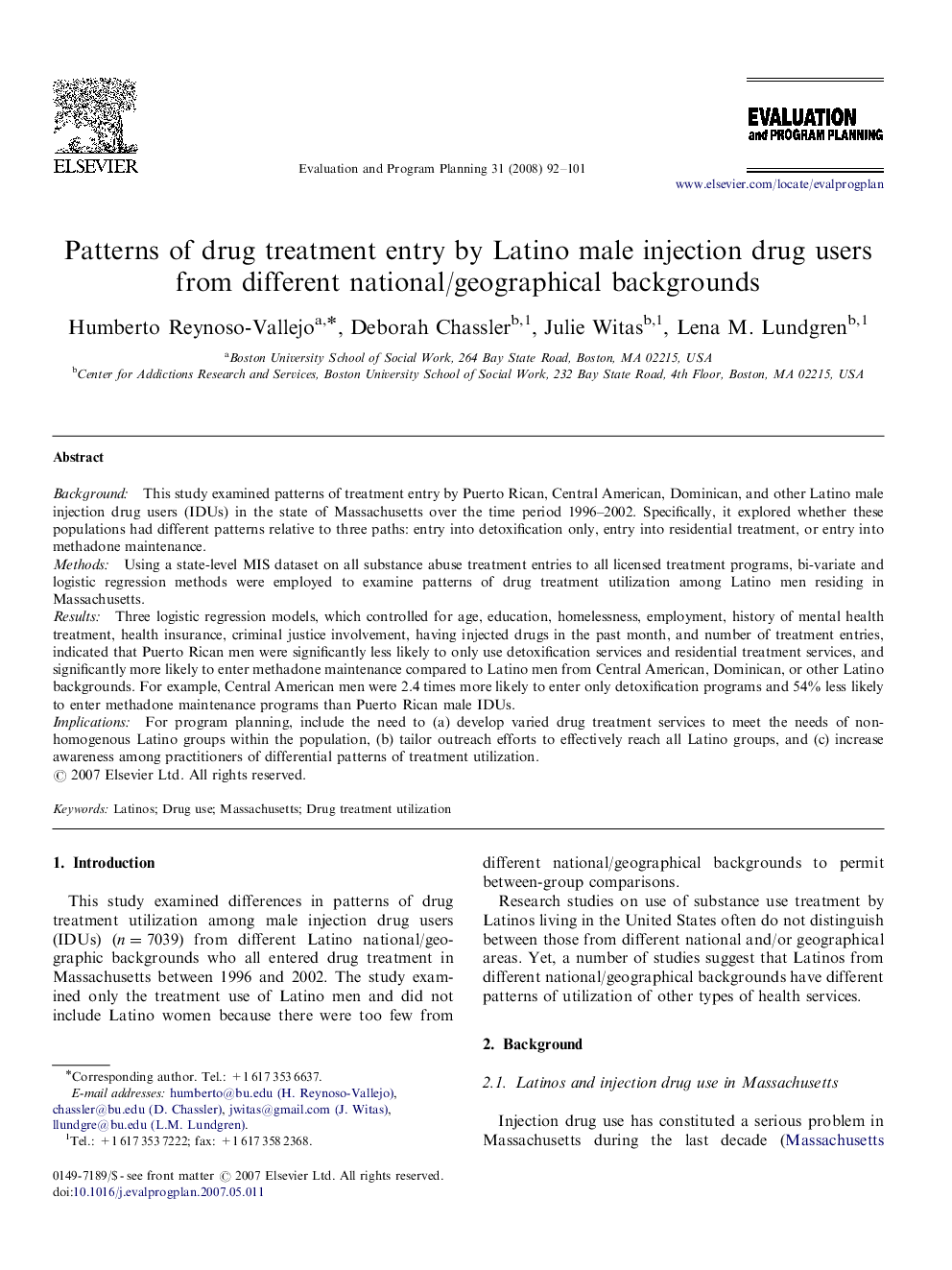| Article ID | Journal | Published Year | Pages | File Type |
|---|---|---|---|---|
| 321663 | Evaluation and Program Planning | 2008 | 10 Pages |
BackgroundThis study examined patterns of treatment entry by Puerto Rican, Central American, Dominican, and other Latino male injection drug users (IDUs) in the state of Massachusetts over the time period 1996–2002. Specifically, it explored whether these populations had different patterns relative to three paths: entry into detoxification only, entry into residential treatment, or entry into methadone maintenance.MethodsUsing a state-level MIS dataset on all substance abuse treatment entries to all licensed treatment programs, bi-variate and logistic regression methods were employed to examine patterns of drug treatment utilization among Latino men residing in Massachusetts.ResultsThree logistic regression models, which controlled for age, education, homelessness, employment, history of mental health treatment, health insurance, criminal justice involvement, having injected drugs in the past month, and number of treatment entries, indicated that Puerto Rican men were significantly less likely to only use detoxification services and residential treatment services, and significantly more likely to enter methadone maintenance compared to Latino men from Central American, Dominican, or other Latino backgrounds. For example, Central American men were 2.4 times more likely to enter only detoxification programs and 54% less likely to enter methadone maintenance programs than Puerto Rican male IDUs.ImplicationsFor program planning, include the need to (a) develop varied drug treatment services to meet the needs of non-homogenous Latino groups within the population, (b) tailor outreach efforts to effectively reach all Latino groups, and (c) increase awareness among practitioners of differential patterns of treatment utilization.
